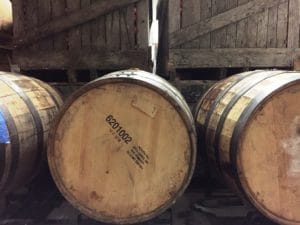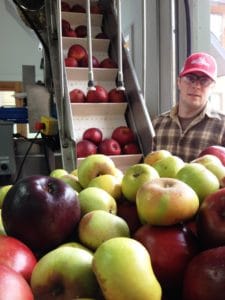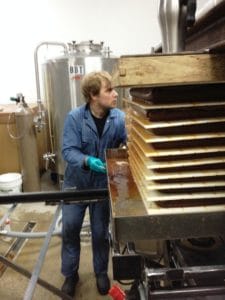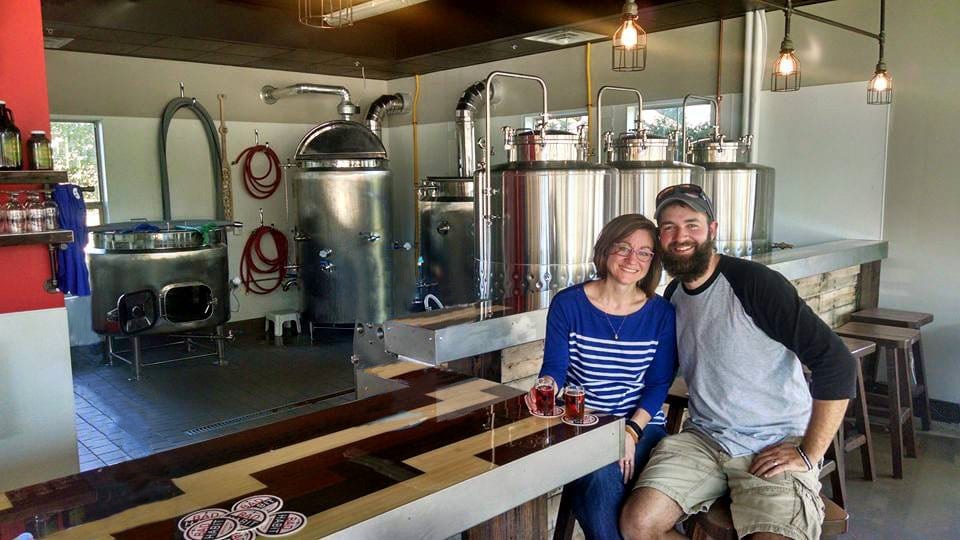by Cori Hilsgen
news@thenewsleaders.com
Local breweries such as The Bad Habit Brewing Co. are enjoying some of the benefits of the passage of recent H.R. 1 Tax Cuts Jobs Act.
Included with the passage of the act, which became effective Jan. 1, was the Craft Beverage Modernization and Tax Reform Act, which helps lower the federal excise tax for breweries, wineries and distilled-spirits producers.
Under this bill, the federal excise tax on beer is reduced to $3.50 per barrel (from $7 per barrel) on the first 60,000 barrels for domestic brewers who produce less than 2 million barrels a year, and $16 per barrel (from $18 per barrel) on the first 6 million barrels for all other brewers and all beer importers.
Aaron Rieland, owner of Bad Habit Brewing Co. in downtown St. Joseph, said they are well below the 60,000 barrels. In 2017 they produced 400 gallons of beer in St Joseph at Bad Habit.
The business will see an annual tax savings in 2018 of about $1,400 per year.
Rieland said they will be able to take that savings and reinvest it back into Bad Habit and the St Joseph community.
Bad Habit Brewing Co. opened Oct. 31, 2015. The business served an estimated 50,000 customers in the taproom in 2017.
Their Hangup Blonde Ale is its top-selling beer as well as Dark Addiction Chocolate Milk Stout. The business has recently introduced Hazy India Pale Ales and a Milkshake India Pale Ale. India Pale Ale is a hoppy beer style in the Pale Ale category.
“Both of these series have been selling very well and have received very good feedback,” Rieland said.
Last year the Bad Habit Brewing Co. introduced crowlers, which are 25-ounce cans of beer sold off-sale only. Rieland said they also started their Artisan Oak Barrel program and will be featuring barrel-aged beers often throughout the year.
Milk and Honey Ciders has been in business for about six years, but owners Peter Gillitzer, Aaron Klocker and Adam Theis opened the CR 51, St. Joseph location in August last year.
Gillitzer said Milk and Honey Ciders tax classification falls under wine and cider. They already had a small producer credit, so their per gallon federal excise tax did not change at all. However, on the state level, which he said was not related to the Craft Beverage Modernization and Tax Reform Act, wine producers were normalized with the beer producers excise tax credit. Starting Jan. 1, the business will save around $300-$400 per month.
Milk and Honey serves about 250,000 glasses of beverages per year between retail and wholesale business.
Gillitzer said their best-selling beverage is their first and flagship, Heirloom.
“This is a good bridge to drier, more complex heritage cider from the cloyingly sweet ciders available from national brands,” he said.
Milk and Honey Ciders offers tours and tastings year-round at its rural St. Joseph cidery.

Barrels of maturing cider and apple crates sit at Milk and Honey Ciders at CR 51, St. Joseph.

The exterior of the Milk and Honey Ciders CR 51, St. Joseph.

Bad Habit Brewing Co. owner Aaron Rieland (right) and his wife Karen enjoy a beverage at their business. In the background are the business’s fermenters, where the beer produces alcohol.

The Bad Habit Brewing Co. in downtown St. Joseph served an estimated 50,000 customers in the taproom in 2017.

Aaron Klocker, one of the owners of Milk and Honey Ciders in St. Joseph, sorts apples before they are washed and milled.

Owner Aaron Klocker presses trays filled with apple pomace at Milk and Honey Ciders in St. Joseph.




